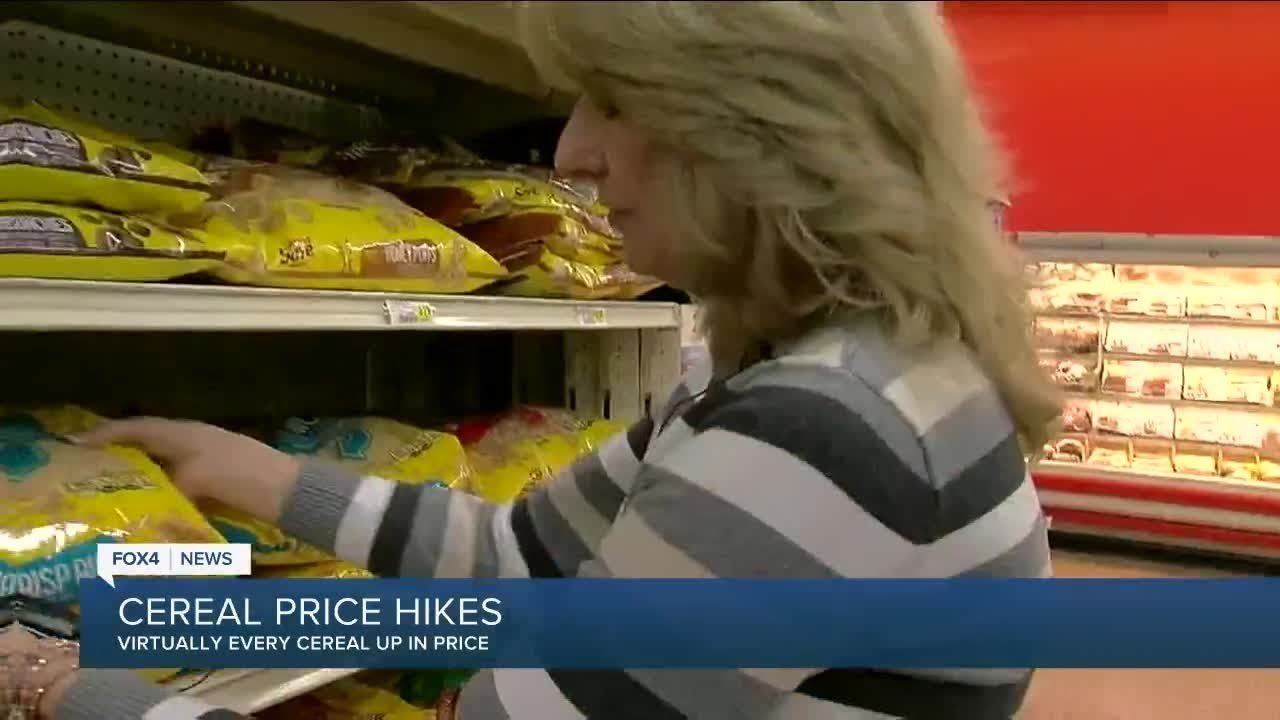Cereal lovers might have to brace themselves for a blow to their grocery budget as prices of breakfast cereals are beginning to spike across many countries. This follows the rise in costs of meat, eggs, and other food products, that have already strained household incomes during the pandemic. The reasons behind the increase in cereal prices vary, including transportation costs, labor shortages, and global supply chain disruptions. In this article, we delve deeper into the reasons behind cereal price hikes, how it impacts consumers, and how they can manage the cost.
Cereal Price Hikes Now Happening After Meat and Eggs
Introduction
After the sharp inflation seen in meat, eggs, and milk prices, cereal prices are following suit. The COVID-19 pandemic has disrupted global supply chains leading to an increase in commodity prices. The slowdown in production and shipment of cereal products, combined with a surge in demand, has led to an increase in cereal prices in many parts of the world. This article examines the reasons behind the cereal price hikes, their effects, and what to expect in the future.
Reasons for the Cereal Price Hikes
The COVID-19 pandemic has disrupted the global supply chain, impacting the production and shipment of food products, including cereals. For instance, the lockdown measures have led to the reduction of the number of workers in cereal processing plants, leading to delayed production and distribution of products. Moreover, international shipping has been disrupted by the pandemic, leading to increased shipping costs which have been transferred to the end consumer.
Another reason for the cereal price hikes is the increase in demand. With more people staying at home and working remotely, the demand for ready-to-eat cereals has increased. Furthermore, the recent inflation in meat, eggs, and dairy products has led to a shift in dietary habits, with more people opting for cereal as a cheaper alternative. This has increased the demand for cereal products, leading to an increase in prices.
Effects of the Cereal Price Hikes
The cereal price hikes have had significant effects on both producers and consumers. Firstly, producers are facing challenges in meeting the increased demand for cereals. The delay in production and distribution of products has led to a shortage of cereals, leading to an increase in prices. Additionally, producers are also facing higher costs of production, including increased labor costs and shipping costs.
On the other hand, consumers are feeling the pinch of the cereal price hikes. The increase in cereal prices has resulted in a reduction in purchasing power, especially for low-income earners. Moreover, the increase in cereal prices has led to a shift in dietary habits, leading to an increase in malnutrition. Low-income families are turning to cheaper, low-quality cereals, or are substituting cereal for other, less nutritious foods.
What to Expect in the Future
The cereal price hikes are expected to continue in the near future. The COVID-19 pandemic continues to disrupt global supply chains leading to delays in production and shipment of products. Furthermore, the increase in demand for cereals is expected to continue, as more people continue to work remotely and seek cheaper alternatives for meat, eggs, and dairy products.
In the long term, the cereal price hikes could lead to negative impacts on global food security. The increase in cereal prices, coupled with a reduction in purchasing power, could lead to increased malnutrition and food insecurity, especially in developing countries. Moreover, the delay in production and distribution of cereal products could lead to increased wastage and the loss of income for producers and farmers.
Conclusion
The cereal price hikes are a result of the disruption of global supply chains caused by the COVID-19 pandemic. The increase in demand, coupled with the delay in production and shipment of products, has led to an increase in prices. The effects of the cereal price hikes are felt by both producers and consumers, and the situation is expected to continue in the near future. It is important to address this issue as it could lead to negative impacts on global food security, especially in developing countries. As consumers, we can reduce our consumption of ready-to-eat cereals and opt for cheaper, healthier alternatives. As producers, we can explore options for reducing our costs of production and increasing efficiency in the supply chain.




































